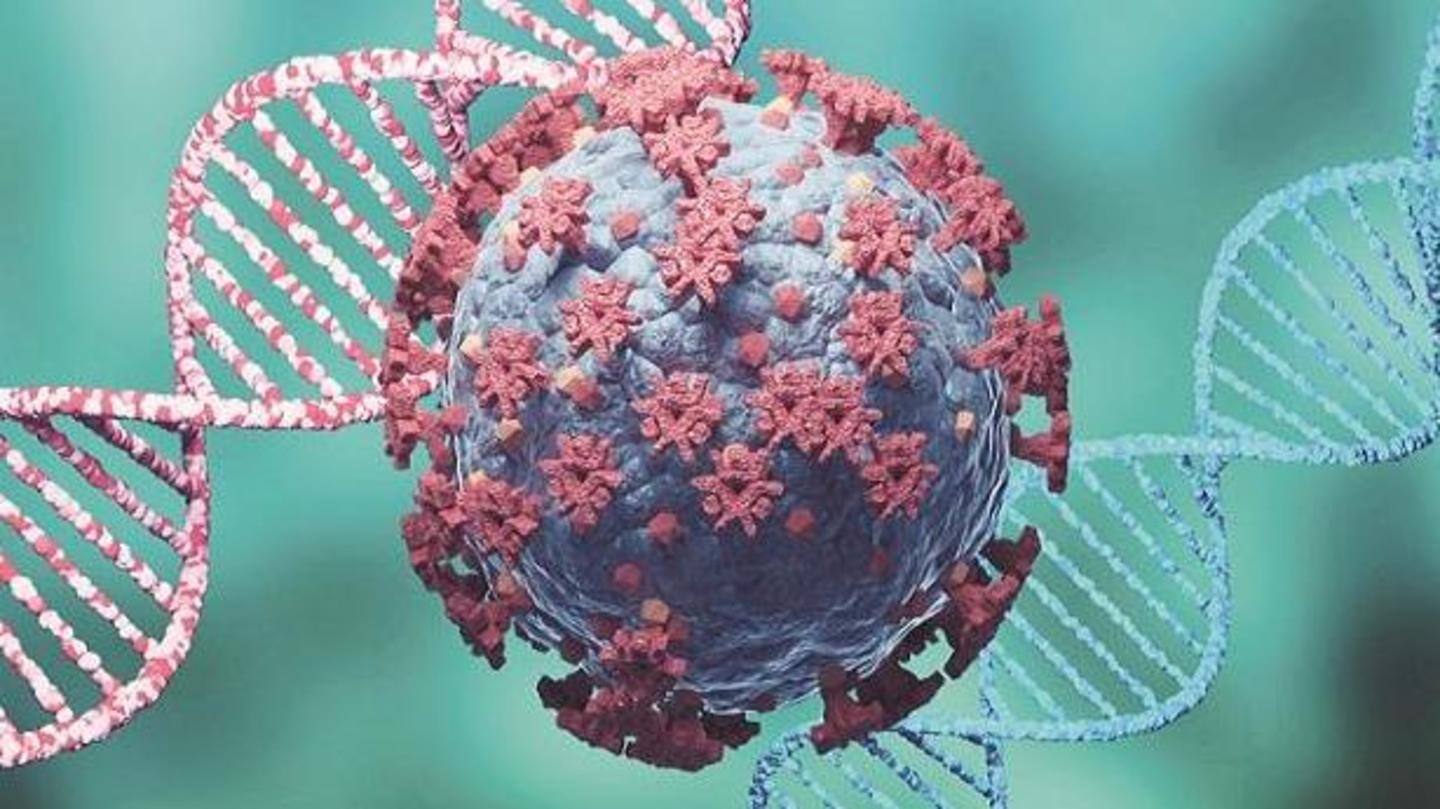
Synthetic SARS-CoV-2 could be used as COVID-19 antiviral therapy: Study
What's the story
Researchers have designed a synthetic defective SARS-CoV-2 that can interfere with the growth of the real virus, potentially leading to the extinction of both the COVID-19 causing pathogen and the artificial one.
In the study published in the journal PeerJ, the researchers explained that when a virus attacks a cell, it attaches to the cell's surface and injects its genetic material into it.
Experiment
SARS-CoV-2 virus enables replication, spread of synthetic virus: Marco Archetti
The cell is then tricked into reproducing the virus's genetic material and packaging it into virions, particles that burst from the cell and go off to infect other cells.
"In our experiments, the wild-type (disease-causing) SARS-CoV-2 virus actually enables the replication and spread of our synthetic virus, thereby effectively promoting its own decline," said Marco Archetti, associate professor at Pennsylvania State University.
DI viruses
DI viruses affect ability to reproduce their genetic material: Researchers
"A version of this synthetic construct could be used as a self-promoting antiviral therapy for COVID-19," Archetti said.
The researchers noted that Defective Interfering (DI) viruses, which are common in nature, contain large deletions in their genomes that often affect their ability to reproduce their genetic material and package it into virions.
Performance
DI genome can hijack a wild-type genome's replication
However, DI genomes can perform these functions if the cell they have infected also harbors genetic material from a wild-type virus, they said.
In this case, the researchers said, a DI genome can hijack a wild-type genome's replication and packaging machinery.
"These defective genomes are like parasites of the wild-type virus," said Archetti.
Utilization
They can also quickly outcompete the wild-type: Archetti
He explained that when a DI genome utilizes a wild-type genome's machinery, it also can impair the growth of the wild-type genome.
"Given the shorter length of their genomes as a result of the deletions, DI genomes can replicate faster than wild-type genomes in coinfected cells and quickly outcompete the wild-type," Archetti said.
Efficacy
DI genome can replicate three times faster than wild-type genome
The team found that the synthetic DI genome can replicate three times faster than the wild-type genome, resulting in a reduction of the wild-type viral load by half in 24 hours.
The researchers engineered short synthetic DI genomes from parts of the wild-type SARS-CoV-2 genome and introduced them into African green monkey cells that were already infected with the wild-type SARS-CoV-2 virus.
Study
DI genome reduced the amount of SARS-CoV-2 within 24 hours
They then quantified the relative amounts of the DI and wild-type genomes in the cells over time points, which gave an indication of the amount of interference of the DI genome with the wild-type.
The study found that within 24 hours of infection, the DI genome reduced the amount of SARS-CoV-2 by approximately half compared to the amount of wild-type virus in control experiments.
Other details
DI genome increases in quantity 3.3 times faster than wild-type
The researchers also found that the DI genome increases in quantity 3.3 times faster than the wild-type virus.
Archetti said that the 50 percent reduction in virus load that they observed over 24 hours may not be enough for therapeutic purposes as the DI genomes increase in frequency in the cell.